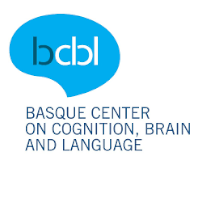
06 Feb PhD – Computational and Neural Bases of Bilingualism: A Complementary Learning Systems Model
The computational and neural bases of bilingualism: A complementary learning systems model| BCBL – Basque Center on Cognition, Brain and Language
HOST ORGANIZATION: BCBL – Basque Center on Cognition, Brain and Language (www.bcbl.eu)
ADDRESS: Paseo de Mikeletegi, 69 2
AREA OF KNOWLEDGE: Life Sciences Panel
GROUP OF DISCIPLINE: Medicine, Public Health, Sports Science, Nutrition, Clinical Neuroscience and Clinical Psychology, Healthcare Management
GROUP LEADER: Prof. James Magnuson j.magnuson@bcbl.eu
RESEARCH PRODUCT / RESEARCH GROUP: BCBL Computational Neuroscience group https://www.bcbl.eu/en/research/research-groups/computational-neuroscience
POSITION DESCRIPTION
Research Project / Research Group Description
More than half the world’s population is bilingual. Basic understanding of how two languages are represented and processed in the brain has fundamental implications for understanding developmental (e.g., dyslexia) and acquired (e.g., aphasia, traumatic brain injury) disabilities in bilingual language processing. Computational models are instrumental tools in developing theories of this complex aspect of human language. A longstanding challenge for models of bilingualism is “catastrophic interference”: training a model on one language and then a second degrades the first language. Such interference does not occur in human learners. In this project, we develop models in the “complementary learning systems” (CLS) framework to avoid or mitigate catastrophic interference. In CLS, the hippocampus serves as the basis for rapid learning based on recent experience and neocortex serves complementary functions of integrating knowledge over long-term experience. We will test the hypothesis that sleep-based consolidation simultaneously reinforces a second language while protecting the first. The Computational Neuroscience group develops computational models to advance theoretical understanding of perceptual and cognitive mechanisms that support language and cognition, and their neurobiological bases. We conduct empirical work (psychometric tasks, eye tracking, and neuroimaging) to test predictions of our models. Our primary areas of interest are
- shallow and deep neural network models of speech perception, speech production, and reading, as well as their development throughout the lifespan, and integrating these models with one another,
- models of bilingual lexical knowledge (form and meaning, using network science and neural network approaches), and
- models of predictive processing and predictive coding.
Job position description
- We seek a Ph.D. student with strong background (and masters) in a relevant domain (a cognitive, biological, or engineering field) and some experience with programming, data science, or computational modeling.
- The successful candidate will be involved in developing and computational models and/or running behavioral and neuroimaging studies, collecting and analyzing data, and disseminating the results in scientific conferences (presentations/posters) and peer-reviewed journals.
- The selected candidate will develop advanced technical and analytical skills and will have the opportunity to develop original experiments under the supervisors’ guidance.
- Applicants should demonstrate a keen interest in the key areas of cognitive neuroscience that are relevant for the research, coupled with strong computational skills (e.g., Python, Matlab, R).
- Experience with neuroscience techniques (e.g., MEG, EEG, MRI) and with analysis of neuroimaging data is desirable but not essential.
- A committed motivation to learning computational modelling and advanced analysis tools is a must, as well as the ability to acquire new skills and knowledge, and to work both independently and as part of a multidisciplinary team.
- A good command of English (the working language of the BCBL) is required; knowledge of Spanish and/or Basque is an advantage but not required.
- The candidate will enrol as a PhD student at the University of the Basque Country (UPV/EHU) and is expected to complete the PhD programme within 36 months.
- Training in complementary skills will be provided during the fellowship, including communication and research dissemination, IT and programming skills, ethics and professional conduct.
- The BCBL also provides support with living and welfare issues.
HOST ORGANIZATION DESCRIPTION
The Basque Center on Cognition, Brain and Language is a world class interdisciplinary research center for the study of cognition, brain and language jointly founded by Innobasque, Ikerbasque, UPV-EHU and the Government of Gipuzcoa.
The center is situated in Donostia and was set up in December 2008, when operations began to create the necessary research environment, including administrative and technical support and to recruit personnel.
We are a multidisciplinary research centre within the Basque Country Science Network, dedicated to the pursuit of excellence in research, training and knowledge transfer within the area of the Cognitive Neuroscience of Language.
Our centre aims to provide a platform for researchers and professionals from related areas to carry out frontline research, development and innovation in this area.
The specific aim of our research activity is to unravel the neurocognitive mechanisms involved in the acquisition, comprehension and production of language, with special emphasis on bilingualism and multilingualism.
Some of the areas we study include the processes involved in normal child language acquisition and second language learning in adults, as well as learning disorders, language disorders, language-related effects of aging and neurodegeneration and language use in different social contexts.
“Language is the most unique human ability and involves complex cognitive processes. Reading and writing are the most impressive cultural developments of our civilization and are at the same time a major developmental milestone in each person’s life.
They fundamentally change the way a person interacts with their environment. However, despite the impressive technological and scientific advances of recent decades we have not yet unravelled the complexities of the cognitive processes involved in language and in reading and we still do not know the causes of some language disorders and reading disabilities and how to remediate them.
The BCBL carries out research using the most advanced techniques in these fascinating areas, with a special focus on bilingualism.”
Please click here to learn more.


Sorry, the comment form is closed at this time.